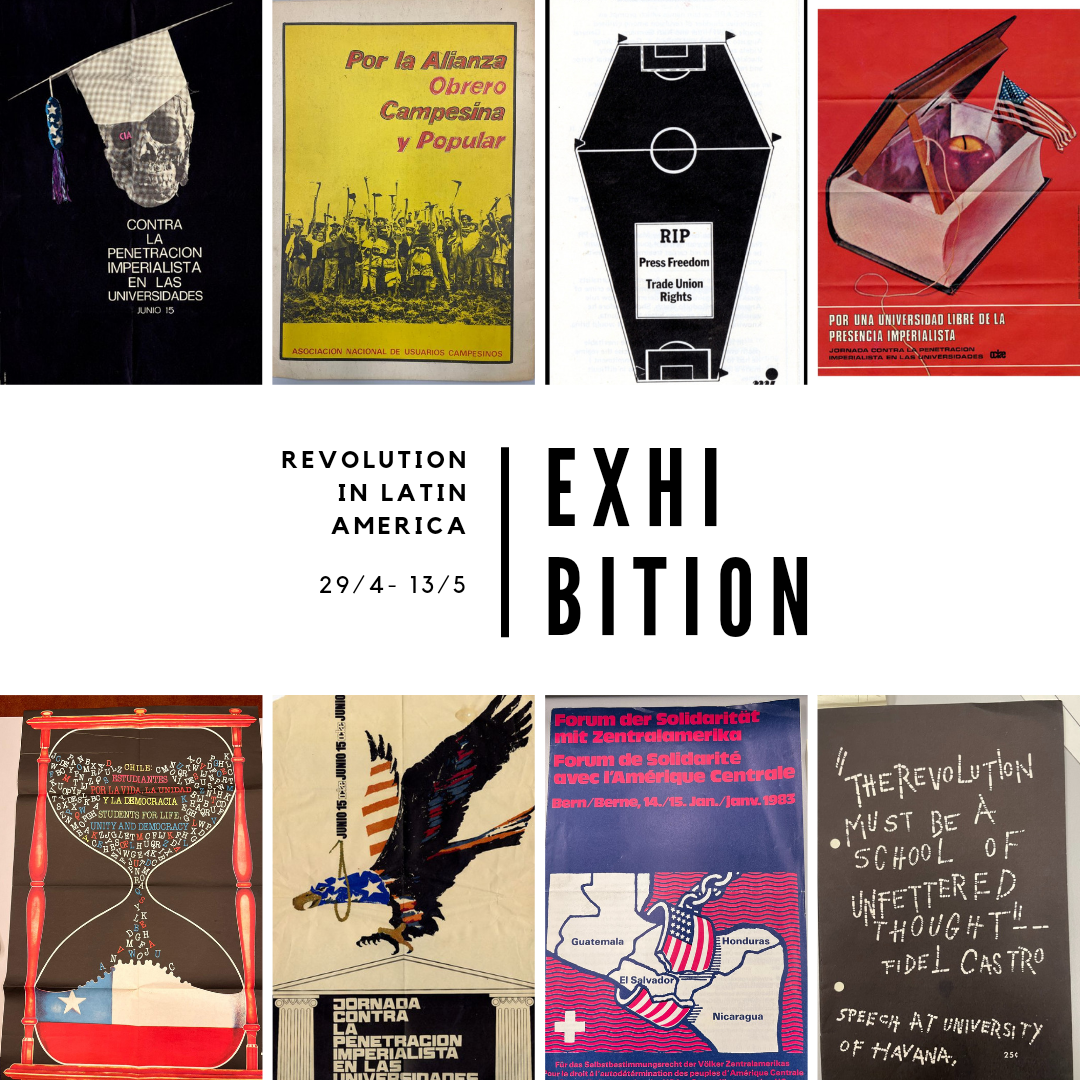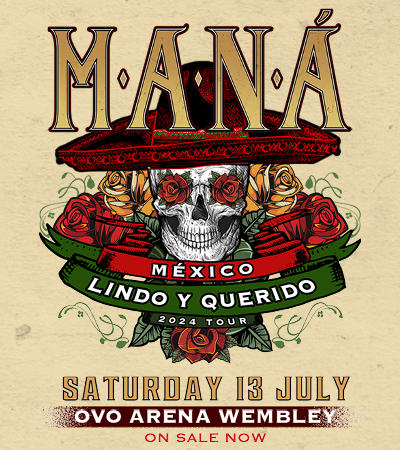
Thinking Inside the Box 2024 Exhibition

The Battle for Change
Latin American revolutions from archives
By Rayhana
I first joined the project, preparing for its second exhibition and festival in late 2022, as part of the Public Relations and Social Media teams. It has been an extremely fascinating experience, as I have learnt about many aspects of Latin American history through engaging with this project and researching for pamphlets – which I have written about in our catalogue and curated for our exhibition.
The two pamphlets that I found specifically striking were from Venezuela and Argentina. The Venezuelan political pamphlet had been produced by the National Liberation Front of Venezuela (F. L. N.)/ The Armed Forces of National Liberation FALN. The Argentinian political pamphlet was produced by the Revolutionary Workers’ Party (PRT)/ Peoples’ Revolution Army (ERP). The FALN was a guerilla group and a ‘paramilitary subsidiary’ of the F. L. N., as stated by the Central Intelligence Agency. The FALN had supported Fidel Castro, and opposed President Rómulo Betancourt and Raúl Leoni. There had been military uprisings that occurred in the year 1962, on the basis of Betancourt’s opposition to Castro. This pamphlet was most likely created in 1963, as it refers to removing a ‘dictatorship’ five years prior. In 1958, General Marcos Pérez Jiménez had been removed from power. In 1963, an election took place in which Raúl Leoni had won. Regarding the ERP, an uprising by students and workers, as a consequence of Juan Carlos Onganía’s regime, had taken place, also known as ‘The “Cordobazo”,’ as T. C. Wright points out. As a consequence of the uprising, a ‘powerful guerilla movement’ had taken place, according to Wright. One of the most significant guerilla groups that had come into existence was the ERP, as Wright notes. The ERP was a Trotskyist and Guevarist group, under the leadership of Mario Roberto Santucho, as Wright points out. The ERP was also a part of the PRT as its armed wing, as stated in the pamphlet. It is worth noting that in 1976, there was a military coup that had led to former President of Argentina Isabel Martínez de Perón’s overthrow. Both pamphlets are very interesting to look at closely. Commonalities between Latin American revolutionary groups can be seen upon turning to the pamphlets. Both pamphlets deliver an ultimatum of death or liberation for their country – the Venezuelan pamphlet states “To Make the Country Free Or Die for Venezuela” whilst the Argentinian pamphlet reads “VICTORY OR DEATH FOR ARGENTINA”. This is further highlighted as both Argentinian and Venezuelan pamphlets incorporate colours that are a part of their country’s flag – the F. L. N. pamphlet uses the colour red and the Argentinian pamphlet uses blue and white. Both organizations use the colour red, symbolic of passion, anger and bloodshed, highlighting how much the beliefs of the organizations mean to the individuals involved and their countries.
Several of my peers also curated and wrote about archives from Latin America, for our exhibition and catalogue, including Agne Reketyte and Muzna Alhaj. Both analysed Cuban posters, and are fellow MA students in Strategic Communications, at the Department of War Studies, in King’s College London.
“When one thinks about the revolution in Cuba, the images of Fidel Castro appear in the mind. Rarely would we ever think about the faces of women in the revolution automatically, without the insinuation to pay attention that. This, however, would be a distorted image as women were active participants in the Cuban revolution. The Cuban revolution could, in some ways, be seen as the revolution of women, too.
While Fidel was considered the face of the Cuban revolution, with almost half of Cuba’s population at the time being of women, they had to be incorporated into the movement. The poster highlighting women workers in the Cuban economy speaks precisely to that. Women became involved in the workforce directly and, in this way, have started leaving the traditional gender roles of stay-at home carers to establish themselves as a crucial part of the workforce in the country.
The Cuban revolution also meant that women were becoming a vital part of the military side, not only in the workspaces. Women fighters were directly involved in the revolution – from the Moncada Barracks assault, considered the start of the Cuban revolution, to the Mariana Grajales Women’s Platoon, which acted as the personal bodyguard unit to Castro. The image of the woman fighter with the gun, sitting in front of the women’s shop, contrasts the traditional gender norms of femininity and the military in one. It shows well the changing Cuban society.” – Agne Reketyte
“Jornada contra la penetracion imperialista en las universidades or The Day Against Imperialist Penetration in Universities, is the title of this political poster, produced by the Organización Continental Latinoamericana y Caribeña de Estudiantes // Continental Latin American and Caribbean Student Organization (OCLAE). Founded in 1966, OCLAE headquarters are in Cuba, and the organisation remains active. The organisation is a platform that advocates free access to education, ending illiteracy, and curriculum decolonisation.
Produced around 1975 in Cuba, the title of this poster is an anti-imperialistic outcry in the face of foreign interference in Latin American Education. It shows a student dressed in a graduation cap and gown, holding a diploma; from the gown’s sleeve emerges another yellow hand below the graduation hand, dressed in red and blue, clutching dollar bills. The hand is dressed in the colours of the American flag, lifting the dollar bills upward, which, according to the poster’s title, implies US interference in education in Latin America, through the provision of funds and scholarships.” – Muzna Alhaj
It has been an honour to participate in this incredible project, and I cannot wait to see what the project has in store for the future.
Please visit https://www.thinkinginsidethebox.co.uk/ and follow @thinkinginsidethebox.kcl on Instagram for more information.














